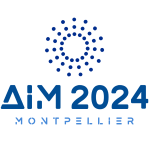Call for papers
WORKING WITH AI OR DESPITE AI?
Since November 30, 2022, the irruption into the public of ChatGPT (Barlette 2023, Rowe 2023) has fueled multiple controversies on Artificial Intelligence (Zacklad and Rouvroy, 2022) by opposing the possibilities and the dangers, by opposing the new revolution industry and a media frenzy, by contrasting digital technologies and their energy cost, by opposing exaltation for novelty to skepticism about usefulness, by opposing creative innovation and its lack of control, by opposing solutionism and deliberation , by opposing progress and the fragmentation of society, by opposing performance and click workers, by opposing tasks and professions, by opposing massive data and abusive correlations, by opposing fascinating results and the banality of places common, by opposing business secrecy and the right to explanation... For higher education, the media have continually reported abuses and cases of student fraud. For professions that rely on information and reflection (monitoring, advice, expertise, management, etc.), the media have comforted their audiences with anxiety-provoking forecasts in terms of task automation and organizational changes. The latest developments resulting from a race between digital empires therefore force us to renew the major questions of our discipline on AI systems: both on their uses (in decision-making, knowledge and communication) and on their management (in strategies, animation, control and security). AI systems are, according to a definition from the European Union (2021), “software which, for human-defined objectives, generates content, predictions, recommendations or decisions influencing the environments with which they interact.” This definition has the advantage of emphasizing the (often hidden) feedback loops that result from the interaction between an AI system and the world in which it operates. In a stated desire for transversality, the positioning of this congress will be anchored on the interactions between AI systems and work in organizations. We therefore welcome communication proposals in various fields, and of course in the scientific and professional environment of Montpellier: health, IT and robotics, law, agriculture, economics, etc. To fuel this scientific reflection around AI systems, we are awaiting contributions which could notably address the following subjects (of course, the list is not exhaustive): Working with AI systems?
Work despite AI systems?
Working without AI systems?
THEMES, TRACKS & GTAIM Authors are invited to submit their work within the general theme of the AIM 2024 conference, one-off thematic tracks and multi-annual themes carried by the AIM thematic groups (GTAIM). More information to come on the AIM website for GTAIM (https://aim.asso.fr) and the conference website in the Themes and GTAIM section. IMPORTANT DATES
SUBMISSION CONDITIONS
Communications can be submitted in French or English The maximum number of pages indicated above includes the cover page and bibliographic references. Any annexes are not counted in the number of pages. The submission of a communication will be made exclusively via the SiencesConf website available from October. The deposit is made by connecting to the site (“Connection” button at the top right of the page), then by accessing the deposit steps via the “Connected space” menu of the site. Ensure compliance with AIM editing standards and correct typos. Documents must be submitted in PDF format and must comply with the format of the submission template. Submission must be anonymous to be double-blind evaluated Once accepted, the final version must be named according to the following format: AIM2024_NOM1_NOM2_NOM3
CONFERENCE LOCATION The conference will take place 18km from Montpellier (France), in La Grande Motte. We will all meet at the Belambra business club on the Ponant peninsula. All-inclusive formula in preparation: registration will therefore include on-site accommodation and access to facilities.
SCIENTIFIC COMMITTEE Bernard Fallery - Professor Emeritus, University of Montpellier, MRM Laboratory Pierre Loup - MCF, IUT GEA department, University of Montpellier, MRM Laboratory Régis Meissonier - University Professor, IAE, University of Montpellier, MRM Laboratory Florence Rodhain - University Professor, Polytech, University of Montpellier, MRM Laboratory
COMMITTEE Antoine Chollet - MCF, IUT computer science department, University of Montpellier, MRM Laboratory Clémence Chéruy - Teacher-Researcher, Ascencia Business School Bernard Fallery - Professor Emeritus, University of Montpellier, MRM Laboratory Karine Gauche - MCF, Institut Agro Montpellier, UMR MoISA, #DigitAg Pierre Loup - MCF, IUT GEA department, University of Montpellier, MRM Laboratory Florence Nande - MCF, IUT GEA department, University of Montpellier, MRM Laboratory Mickaël Peiro - MCF, IUT Paul Sabatier Toulouse Florence Rodhain - University Professor, Polytech, University of Montpellier, MRM Laboratory Marie-Laure Weber - MCF, IUT GEA department, University of Montpellier, MRM Laboratory
REFERENCES Yves Barlette 2023, Frantz Rowe 2023, contributions in Opinion Paper: “So what if ChatGPT wrote it?” Multidisciplinary perspectives on opportunities, challenges and implications of generative conversational AI for research, practice and policy. International Journal of Information Management Volume 71, August 2023. https://www.sciencedirect.com/science/article/pii/S0268401223000233 Manuel Zacklad, Antoinette Rouvroy. The situated ethics of AI and its controversies, Revue française des sciences de l’information et de la communication, n°25, 2022. http://journals.openedition.org/rfsic/13204 |



